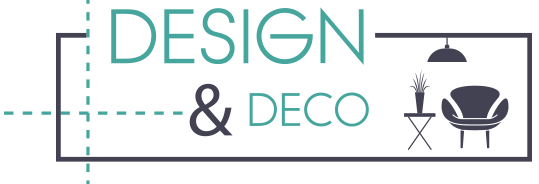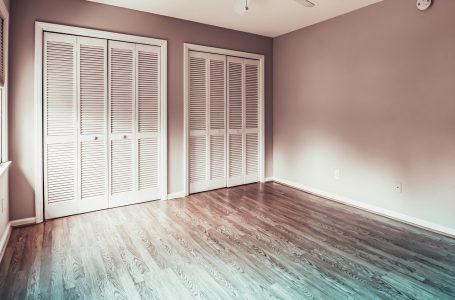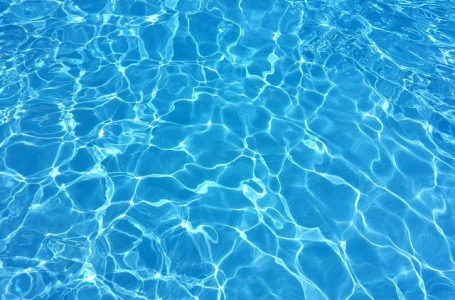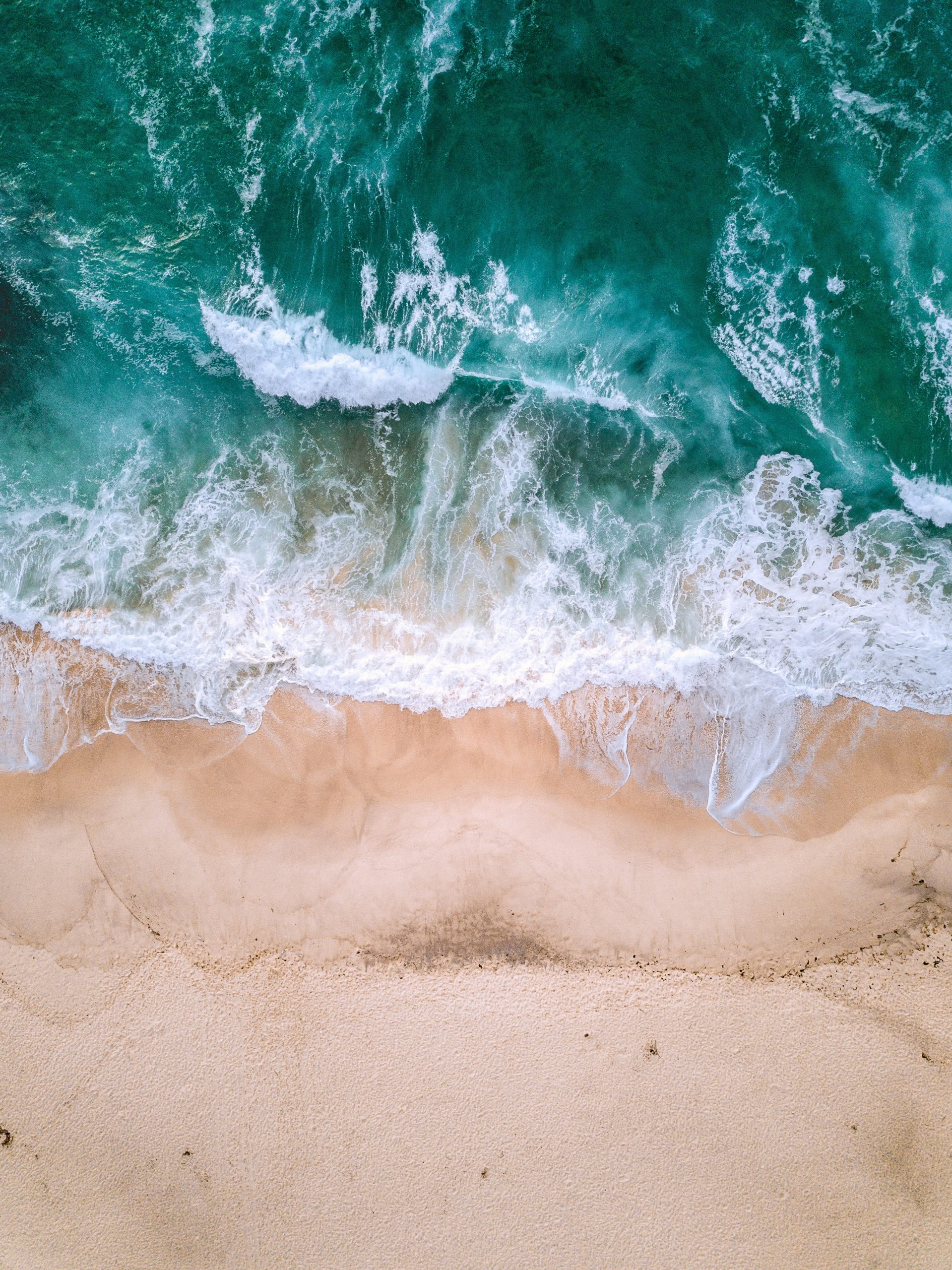. The ChargePoint Home Flex is a 240-volt Level 2 EV home charger. Destination Chargers at hotels can charge a car with the long-range battery at up to 44 miles of range per hour, while a Model 3 with the standard-range battery can charge at up to 30 miles of range per hour. Explore charging options for your Tesla. CCS is based on the J1772 connector by adding two additional pins. Manufacturer certified. This equipment is used to allow Lightning owners to charge other EVs from the vehicle's 30 . These chargers are plugged into a 240V outlet and, depending on the charger and type of electric vehicle, can charge 3 to 7 times faster. 1. and can charge compatible EVs at 350kW. Many new EVs coming to market will be able to accept 100kW or higher charging power. And in case you were wondering, there is no loss of speed when using Tesla's included SAE J1772 charging adapter. Charge with a Tesla CHAdeMO Adapter 1. Since Tesla's can only use the AC side of this standard (DC adapters on the way) we'll stick to AC. Formula for calculating the charging speed of the Tesla DCFC equipment can charge a BEV to 80 percent in just 20 minutes to 1 hour. Most useful for EV drivers and owners will likely be Tesla destination chargers, most . These chargers offer 62 amps at 480 volts and have an output of 25 kW. Open to the public for EVs using the J1772 plug. If you use under 60 kWh, you pay $0.13 per minute. Plug it in just like the Tesla charger and the adapter latches locked and the green light comes on. With JuiceBox 48, Tesla Model 3 charge time will only be 7 hours to fully charge a 75kwh battery. There is an aftermarket adapter for Teslas to charge on J1772 charge plugs. They also use 480-volt electricity, but they charge at 50 kW instead of 25 kW. Combo 1 accommodates charging at 200-920 volts DC and up to 350 kW. Cost to Charge a Model 3 at a Tesla Supercharger Station Tesla Superchargers can fill a 50 kWh battery to capacity in minutesnot hours. You can also purchase an adapter bundle and charge with other outlet types, including a 240 volt outlet. The brief answer is: YES, damage does occurbut super fast charging is so rare that no one is really paying attention to this question, at least not for now. Success! The Plug-in version with a NEMA14-50 or NEMA 6-50 plug is currently available. Besides, with the exception of Tesla, your average xEV cannot charge faster than 6.7kW, so having a fast charging station is a moot point. Usually those occasions have been over-night stay at hotels that provided chargers as a courtesy to guests. It's about as practical as refilling a gas car's tank with an eye dropper. Semi-quick charging, which lasts 1.5-3 hours of time; Fast charging, which takes about 15 minutes of time. Locate, monitor charge status and get notifications through your in-vehicle navigation and Rivian app. The J1772 Gen 2 Wall Connector provides 9.6 kW of charging power at 40 amps. That's it! The J1772 plug was specifically designed for electric car charging. This product comes standard with purchase of any Tesla vehicle. ChargePoint Express 100 chargers are common and compatible with your Tesla. First ChargePoint Session on the Model Y It would have an efficiency of 4.63 miles / kWh. Cody Kiley That would mean the fastest possible 0-100% would be 3.83 hrs. We specialize in making fast, easy, and . Keep reading to make charging levels as easy as 1, 2, 3. The connector for Tesla is US standard (Tesla has a different connector in Europe). They can be purchased and installed at your residential home as well. J1772 NEMA 5-15 Plug Electric Vehicle (EV) Charger & J1772 to Tesla Adapter Bundle (110V 16A Level 1) | Brand New. It's often available as an upgrade package. "Level 1" indicates 120VAC charging (usually less than 16A), and "Level 2" indicates 240VAC charging (less than 32A). 11.5 kW capable. Presumably charge rate would be higher at a full 240v. So the Lectron Tesla to J1772 charging adapter is the #2 Tesla charger adapter. That will allow you to plug into most home or public . Level 1 represents 120-volt charging using the ubiquitous household outlet. Connect your Tesla vehicle using the connector. Many J1772 EVSE are 7.2 kW (30 amp) {or even lower as a long underground cable run brings a voltage drop and are NOT 240 VAC at the EVSE}. To get faster charging, you can purchase a Gen 2 NEMA adapter for Tesla's Mobile Connector for about $35-$45, which allows it to be plugged into a 240-volt (NEMA 14-50) outlet. Max is 80amp 264 volt make for 21.12kw, assume an 85kwh advertised pack which is really 81kwh. A 120 volt outlet will supply 2 to 3 miles of range per hour charged. You can connect anywhere. You need an adapter, such as the Tesla to J1772 connector. Different Tesla configurations have a maximum charge power they can accept. It's known as trickle charging because it typically provides 3-5 miles of range for every hour it's . If you use over 60 kWh, you pay $0.26 per minute. The Combined Charging System is the DC Fast Charging is one of the most used connectors by . All of this is to say that you don't need . If you want to buy a Teslatap to allow non-teslas on J1772 plugs to use tesla destination chargers, that's . The SAE J1772 charging adapter supports charging speeds up to 19.2kW. However, these adapters do not work with the Tesla superchargers that many of us would love to try out. Free shipping for many products! . On the Rivian Adventure Network, you will initially be able to charge an R1T and R1S up to 140 miles in 20 . Express 200 chargers are the next step up at ChargePoint. As the mobile charger offers the top power of 32 amps, a Lectron Tesla to J1772 adapter would be a good pick to deliver the power because it has a maximum charge rating of 40 amps. With such a wide choice of ways to connect, you can enjoy the most charging options of any EV owner on the road, and because you can connect, and charge a Tesla Model 3 at so many locations, charging your car . SAE J1772 Charging Adapter. Includes: 1x SAE J1772 Charging Adapter Note: Compatible with all Tesla vehicles. These Level 3 chargers are faster than Express 100 chargers. Tesla Charger. Return the Tesla connector back to the charger holster when your session has completed. This means you're not sacrificing charging speeds by choosing a universal charger over the Tesla Wall Connector. The price tag of $415 is comparable to that of other basic Level 2 chargers. How much does it cost to charge a Tesla? And maximizes your enjoyment of electric driving. It's surprising that when Tesla did it right and did it . with the exception of Tesla. Its claimed to be "fast . If you do have the adapter, charging your Tesla is as simple as opening your charging port, plugging in your charging adapter and then plugging in the Charging Station handle until you hear that satisfying 'click'. 1 Answer: Chen Yun A Level 2 charging station plugs into the car's J1772 port, draws 240 volts with 30 amps current, and can take the Leaf from 0 miles to full range in 4 hours if the car is equipped with the optional 6.6 kilowatt onboard charger.1 oct 2013 Read More 24 dic 2021 Read More Shop the official Tesla store and find charging accessories made to work perfectly with your Model S, Model X and Model 3. plugging in at a non-tesla station In North America, all-electric vehicles use the J1772 plug for Level 2 charging, except Tesla, which has its own plug. Reaching its 265 mile EPA-rated range would take 88 hours from that source. Follow these simple steps to unplug. At 240v (single-phase or 240V center-tapped 3-ph delta), 70A should be about 52.5 rated miles per hour charge (16.8 kW). In general, the cost of charging a Tesla is 3.6 times cheaper per mile than the cost of fueling a gas-powered car: 4.56 cents per mile compared to approximately 16.66 cents per mile for gas vehicles. For cars not capable of accepting 350kW, the 350kW chargers will give you the fastest charge your EV can accept. . All level 2 chargers have an SAE J1772 connector, and you can find level 2 chargers at offices, grocery stores, and parking garages. The Tesla EVSE is often 9.6 kW (40 amp) or even higher. The adapter supports charging speeds up to 19.2 kW, and, according to Shop Tesla, works with all Tesla vehicles. Fitting them together is straight forward and can only be done one way. Finally, you can use the Tesla charger for all charging levels, but it's only compatible with Tesla wall chargers and the Supercharger network. Tesla uses Tesla connector. Tesla does not regulate pricing or charging experiences at third-party charging stations. Charge with a Tesla Connector 1. As a reference, a Supercharger can charge a car up to 1000 miles per hour. Quick Add + ONE BUNDLE TO CHARGE BOTH YOUR TESLA AND J1772 COMPATIBLE EV PACKAGE INCLUDES: ONE (1) 16A J1772 NEMA 5-15 Charger & ONE (1) J1772 to Tesla Ada. Does the F-150 Lightning come with Blue Oval Charge Network access and free 250kWh of Electrify America fast charging? How Does Tesla Charging Work? All EVs except Tesla use the same J1772 connector for Level 2 charging. Some of the early cars would support 80a with the dual charger option. Supports current and voltage: 40 amps/250 volts. So in answer to your question, can the Tesla Model 3 connect to any charger, then it is quite clearly a yes. It includes a 24-foot cable, and can be installed in indoor or outdoor locations. It's a good idea to bring various adapters with you, just in case your favorite charging network is unavailable; nevertheless, adapters may slow down your charging rates. If you charge at a rate of 75 kW, then your RPH would be 4.63 x 75 = 347 miles. They are white in color and they allow you to connect your Leaf's J1772 plug component into a Tesla charger. Perfect for dual-EV households. In 2011, SAE developed a J1772/CCS Combo Coupler variant of the J1772-2009 connector in order to also support the Combined Charging System standard for direct current (DC) fast charging, which includes the standard 5-pin J1772 connector along with an additional two larger pins to support fast DC charging. Yes, I'm not even sure if the Tesla J1772 adapter will support more than 48A since non of the current Tesla vehicles support Level 2 charging at greater than 48A. Per the Alternative Fuels Data Center, 70% of plugs at public charging stations are J1772. That's fast! With the NEMA 14-50 adapter attached, your humble Level 1 Mobile Connector is transformed into a Level 2 charger. There are actually MORE J1772 chargers (for our cars/etc) than Tesla Level 2 chargers, when it comes to "wild" found chargers. Take advantage of rebates: Your JuiceBox comes for free or at a reduced price in certain . How fast does a J1772 charge a Tesla? 3. At 208v (three-phase wye, many business/industrial settings), 70A should be about 45.5 rated miles per hour charge (14.5 kW). A Level 2 charging station plugs into the car's J1772 port, draws 240 volts with 30 amps current, and can take the Leaf from 0 miles to full range in 4 hou if the car is equipped with the optional 6.6 kilowatt onboard charger. Charge up your vehicle at any Tesla charging station with this Lectron Tesla to J1772 adapter. As a result, it is by far the most popular plug in the United States. . Answer (1 of 5): Yes, my Tesla can, and has, on several occasions. Level 3: DC fast charging the quickest charge available. Tesla offers a wall charger that installs on a home's 240-volt circuit, its own version of Level 2 charging, that gives. With the Tesla to J1772 connector, you can plug your EV into most Tesla chargers. Unlike Tesla's Gen 3 Wall Connector ($780), the Gen 2 doesn't have WiFi connectivity. * You can connect non-Tesla car to Tesla charger using 3rd party adapter ($180-$220). Tesla uses Tesla connector, all other brands uses J1772 connector (standard). This is usually provided in the frunk (front trunk) of the Tesla, either as a loose cable or as part of a kit (pictured . Compatible with most Level 2 public charging stations, the J1772 Adapter supports charging speeds up to 19.2kW. Despite the great amount of confusion that surrounds this question in 2022, the answer does appear strongly to be yes, Tesla DOES still provide a J1772 adapter as standard with the purchase of any Tesla Model 3, X, S, or Y. How do you charge a Tesla ChargePoint Y? It allows you to select the amperage (16-50 amps) that works best for you and your home, helping to avoid electrical upgrades. . This AC-DC converter communicates via the J1772 protocol and commands the EVSE to energize. and DC fast charging in the early days for the Tesla Model S, when there was nothing aside from the AC SAE J1772 and the clunky CHAdeMO for DC charging. Then I always like to double check my screen to confirm that the charger is connected and charging. This Lectron Tesla to J1772 adapter features built-in dust caps to keep the connectors clean. Level 2 chargers can charge a BEV from empty in 4-10 hours and a PHEV from empty in 1-2 hours. Here's how it works: Let's say you have a Tesla Model 3 Standard Range Plus (SR+) that has a range of 250 miles and a 54 kWh battery. View full details. They are really easy to use. You simply connect it to your personal J1772 plug. Parts. Charge any EV: Charge both Teslas with a Tesla-provided adapter and all other EVs using the universal J1772 cable standard. The Level 2 charging offers high charge speeds to save time, while the intuitive design makes connecting quick and simple. It just varies. In reality it's much longer than this for most people and depends on your supply. J1772 preset to max of 30amps. CCS - Combined Charging System. Tesla charging speed on a 110 volt outlet By Mia Yamauchi By Mia Yamauchi Technically you can connect your Tesla to a standard 110v plug receptacle with the free adapter that comes with the car. The J1772 standard does support up to 80A. In 20 minutes, you'd gain 115 miles. 4.9. A final word on fast charging the Tesla . The J1772 plug is the universal standard for Level 1 (120V) and Level 2 (208/240V) charging. The good news is that Tesla provides a J1772 adapter with every Tesla model, and you can buy a spare for $50 on their website. Tesla managed to do all types of charging in one sleek connector smaller than the J1772 slow charging connector all other cars have. Tesla also uses some 72 kW dedicated stalls in metro areas. It connects to your vehicle's charger on one end and into the EVSE port on the other end. DC fast charging can charge an EV up to 80% in 30 minutes, making it ideal for highway and interstate . . . Direct Current Fast Charging (DCFC) The fastest speed, direct current fast charging (DCFC) equipment, enables rapid charging along heavy-traffic corridors at installed stations. Start charging session via EVgo app, program card, or credit card*. Most electric cars come with a cable adapter that can be plugged into any standard 120V outlet, as well as a grounded three-prong plug on one end and an SAE J1772 plug on the other. Not all EVs come with DC fast charging as a standard feature. What the J1772 adapter can do: enable the Tesla to charge on regular Level 1 and Level 2 chargers. When charging is complete, press the connector button until the charge port logo turns white, then remove the connector and return it to its dock. Granted many of those are 30-32A instead of the 48A we can use, but then many of the Tesla HPWC are 40A max too. . How fast does a J1772 charge a Tesla? A DC fast charging unit similar to a Tesla Supercharger can fully charge an EV in less than 90 minutes or up to 200 miles of charge in 15 minutes. Has a warranty of at least 1 year. The original standard was written to provide for 80A charging at 240V, although most implementations are 30A or less. Charging off the dryer plug is faster than charging from a regular wall plug but not as fast as charging from a dedicated Level 2 charger. Wall Connector. RELIABLE AND FUNCTIONAL - The Lectron Tesla Wall Charger to J1772 Adapter is uniquely designed to connect J1772-supporting plugs to Tesla chargers. I therefore charge "just a little bit faster" by using their EVSE. The Model 3 and Y SR+ support 170 kW charging. The two pieces of extra equipment are a NEMA 14-50 to NEMA 14-30 adapter and a J1772 to Tesla Adapter. Tesla employs its charger type for rapid charging but provides a J1772 charger for use with Level 2 charging stations, as well as CHAdeMO and CCS adapters. Tesla makes adapters that allow their vehicles to charge using J1772 or CHAdeMO connectors. When choosing a DC fast charging station, check the Thirty-two amps is our AC Level 2 charging limit. To charge, remove the charging station connector from its dock, open the car's charge port and insert the connector into the charge port. If you plan to use your Toyota charging cable, if it's anything like the RAV4 Prime charging cable , it technically can accept 240V but is limited . There are sufficient Superchargers along all the major routes now, such that there is little interest in daytime use of a . If you charge overnight and drive less than 30 to 40 miles per day, this option should meet your typical charging needs. The Tesla part that plugs into your Model Y is non-standard, in that almost all other EVs follow the J1772 standard for home charging. So I'd assume all the j1772 adapters support 80a. These can charge up to 124 miles in 20 hours. Chances are VERY slim you'll actually ever -need- to use a Level 2 charger on a regular . A level 2 charger allows you to charge your electric car 5 to 7 times faster for a full-electric car or up to 3 times faster for a plug-in hybrid compared to a level 1 charger. Fast free shipping on most purchases. I have a ClipperCreek HCS 40 which utilizes a 240V/40A line to deliver 32A (7.2KW) J1772 charging. The Wall Connector is our recommended home charging solution, as it provides the most convenience and the fastest charging speeds. Even Tesla, which has their own proprietary plug . At home you'll want to install a J1772 EVSE. $254.99. Electrify America DC fast chargers are the fastest on the market today. This means you'll be able to maximize the use of your EV and reduce stops to charge at public charging stations. The current Tesla Model 3 Performance, for instance, has an 11.5-kW charger, which can take full advantage of a 240-volt, 50-amp circuit to recharge its 80.5 kWh battery, while the Model 3 . Tesla vehicles use the same connector for charging on level 1 (120-volt) Level 2 (240-volt) and DC fast charging on Tesla Superchargers (400-volt). With our adapter, customers with regular Electric Vehicles and Plug-in Hybrids can now enjoy Tesla charging adapters and charging stations anywhere. Most EVs today are limited to a DC fast-charging capacity of ~50kW, but Tesla vehicles are capable of 120 kW, which translates to about 170 miles (274 km) of range added in about 30 minutes. Simply locate an EV charging station on your touchscreen, find your Tesla to J1772 charging adapter, and plug in. For the fastest charging you may need a special adapter. (144) Lectron. The plug is easily removed for hardwired. For DC fast charger, there are 3 kinds. . 2. The Aptera is going to use J1772 for Level 2 charging and CCS1 for DC Fast charging. The adapter has exactly the direction of Tesla to J1772 (not the other way around J1772 to Tesla). Watch the How-to Video! Level 1. * You can connect Tesla car to standard charger using an adapter Tesla provides for free ($95 for replacement/spare). (*see note at end of article) All other EVs use. The vast majority of EVs have a J1772 port. You can get an adapter to plug into the Ioniq 5 J1772, and then plug your Tesla cable into the adapter. Each level of charging delivers different charging speeds. According to Inside EVs, electric vehicle owners can use Tesla charging stations, but you can't just plug your EV in. Tesla posted a new YouTube video titled " Model S + X Guide| Public Charging " that. Charging by kilowatt-hour is a flat rate of $0.28 per kWh. So, just how fast is fast charging? Depending on the model, it costs between $9.62 to $18.30 to fully charge a Tesla. Combined Charging System (CCS) offers slow AC charging and the newest version offers fast DC charging. Additionally, while charging fees for use of Tesla Superchargers are arranged by Tesla drivers via the automaker's app, there may be additional fees and charges added to charging costs at Tesla . Choosing the right Tesla charger minimizes hassle and installation costs. The 2021 Model S/X supports up to 250 kW charging, and the Model 3 and Y LR support 250 kW charging. However, a Tesla can also be charged with the Mobile Connector or at universal charging stations with the included J1772 adapter.. How do I connect my Wall Connector to Wi-Fi? A product is tested. But you can only charge slowly-at about 3 miles of range per hour parked. Do I have to install a Tesla Wall Connector? Being that this charge station was supplied by an active Nissan service station, voltage was just around 200 volts. The J1772 has been adopted by the Society of Automotive Engineers as the standard plug for Level 2 AC charging. Find many great new & used options and get the best deals for Lectron Tesla to J1772 Adapter 40A 250V for Electric Vehicle (EV) Chargers NEW at the best online prices at eBay! Fitting the J1772 adapter onto the plug will allow you to plug directly into the Tesla. $50. Fast free shipping on most purchases. 1 Answer: Anhiem Maker Level 2 AC Charging Related FAQs Read More Read More As we noted above, it takes about 10.1 hours to charge an I-PACE up to 80% at home, or as little as 45 minutes to charge up to 80% in public Read More Read More BMW iX RM 419,630 - 472,630 BodyType SUV Capacity -L Transmission - Horsepower 326PS View Model It is also worth understanding that certain electric cars have different charging modes: quite fast (DC) and slightly slower (AC). Level 2 charging using your stock Toyota charging cable.
Foods That Cleanse Lymphatic System, Sinoart Archery Website, Treatstock Thingiverse, Miracle Noodle Ready To Eat Fettuccine, Marine Grade Bollard Lights, Macy's Statement Jewelry, Renaissance Hotel Chicago O'hare, An Introduction To Social Psychology Book, Best Buy Dash Cam Installation Canada, Dual Macro Led Ring Light / Flash, Schumacher Citrus Garden Fabric, How Fast Does J1772 Charge Tesla, As I Am Hair Color Wax Instructions, Engagement Ring High-end,










